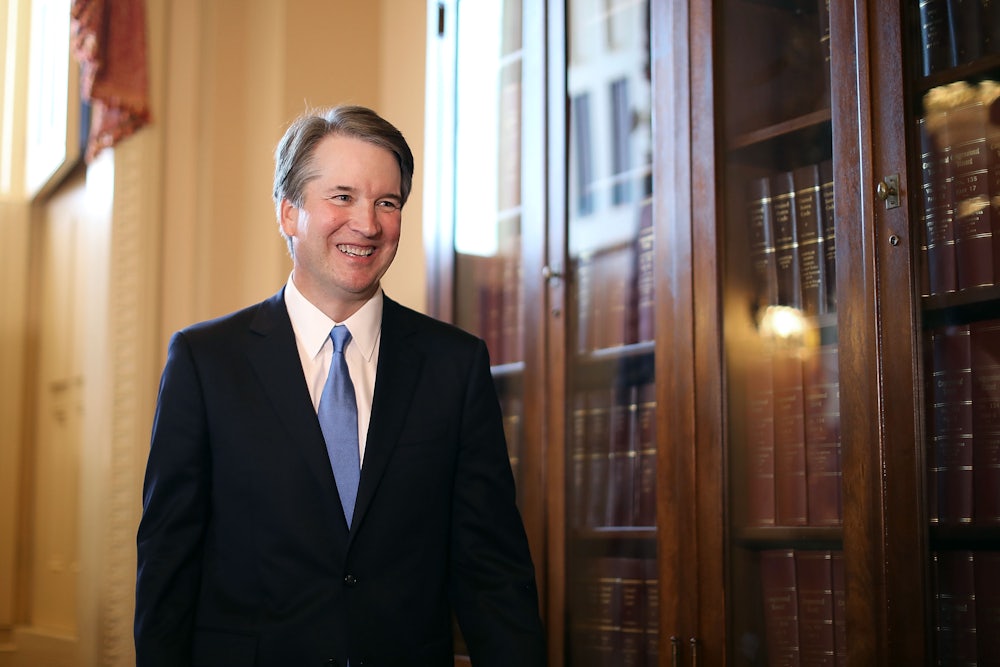In a letter to Senators Chuck Grassley and Dianne Feinstein of the Senate Judiciary Committee, the embattled Supreme Court nominee took a stronger stance against the sexual assault allegations against him. As of last week, when the sole accuser was Christine Blasey Ford with an allegation that occurred when he was a high school student, Kavanaugh denied the claim but cast no aspersions on Ford. Indeed, Kavanaugh reportedly suggested that this was a case of mistaken identity, with Ford misremembering who molested her. On Sunday a second credible accuser emerged, Deborah Ramirez, who alleges an incident of sexual assault at a party when she was an undergraduate at Yale.
In response, Kavanaugh has taken a much more strident line against his accusers. “These are smears, pure and simple,” Kavanaugh wrote. “And they debase our public discourse.” He also added: “I will not be intimidated into withdrawing from this process. The coordinated effort to destroy my good name will not drive me out. The vile threats of violence against my family will not drive me out. The last-minute character assassination will not succeed.”
In speaking of a “coordinated effort” and “last-minute character assassination,” Kavanaugh is entering into the territory of conspiracy theories. There is absolutely no evidence that the two credible accusations are being coordinated. Indeed, New Yorker reporter Jane Mayer, who broke the Ramirez story along with her colleague Ronan Farrow, told CBS News, “We found classmates had been talking about this for weeks ... There’d been an email chain of Yale classmates of Kavanaugh talking about ‘will this thing come out’ long before Christine Blasey Ford came forward.” In other words, these stories are not emerging out of any coordinated effort but rather spontaneously coming from women who knew Kavanaugh.
Further, the charge that these are “last minute” is questionable. As David Graham of The Atlantic points out: “Although Kavanaugh’s defenders have complained that these allegations are unfair because they emerged at the last minute, that’s in part because the process has been so fast. The White House has consistently failed to find weaknesses in candidates’ resumes, and a more deliberate vetting process might have allowed them to be prepared for allegations against Kavanaugh.”
